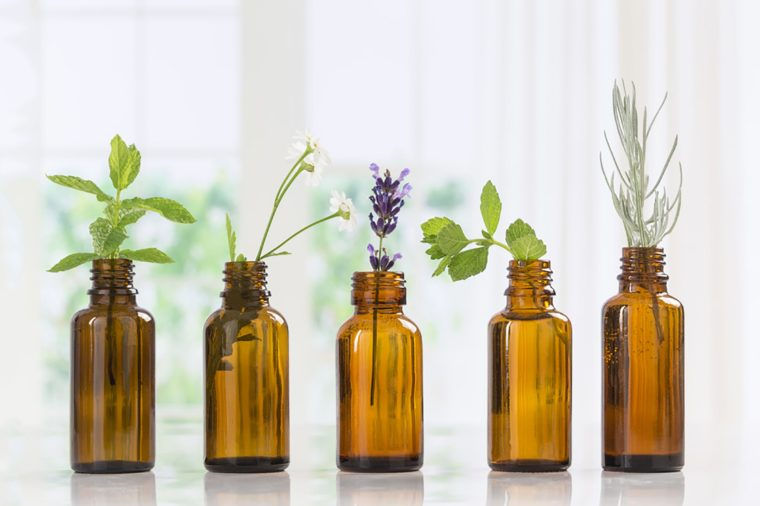Natural Remedies for Eczema
- Amanda MacGregor

- Feb 28, 2019
- 4 min read
Updated: Mar 22, 2021

Living with eczema can be a challenge for most and I recently experienced the challenges to an extreme level. For over six months, I suffered from one of the worst cases of eczema I had ever had. I had spent months with rashes covering my arms, legs, hips, and neck.
At first, it was being pegged as bad symptoms from either a food reaction or environmental allergies. My skin was peeling everywhere, burning, and was itchy 24/7. By the end of December, my eczema had moved up my neck and started to cause me terrible pain. I spent a lot of time crying and, even more time itching the skin off my body.
Joe had enough just standing by and watching me suffer. We tried plenty of home remedies and started visiting new doctors to finally get an answer and some relief. That is when we learned, that with the several types of eczema there are, I was suffering from atopic dermatitis.
During these months I was suffering from my red and itchy skin, I found myself allowing my eczema to control my life; I was seeking clothes to cover up my skin and was avoiding outings due to my symptoms. I was trying many store-bought products that had just left my skin feeling dry and even more irritated. It took me many trails-and-errors and a trip to the Dermatologist to finally get it right and be able to share the relief with you.
It's time to replenish moisture and protect your skin’s natural barrier once again! Below is a list of natural remedies you can try at home that may help relieve and heal your eczema rashes!
PLEASE NOTE: I am not a medical professional. Please speak to your doctor before trying any new home remedies or products suggested below.

Soaps and Moisturizers
I have been on the search for months now to find a moisturizer that would not irritate my skin and help restore its natural barriers. My house was stocked with Cetaphil products; I love their brand due to the lack of chemicals added to their products. However, it wasn't helping lock in the moisture my skin needed. After seeing the dermatologist, she changed up my skin regimen. I now use Dove: Sensitive Skin bar soap to wash, CeraVe moisture in the morning and post-shower, and Aquaphor at night.

Colloidal Oatmeal
Colloidal oatmeal is made from finely-ground oats and is proposed to help calm and soften inflamed skin. Colloidal oatmeal is available as a cream or in powder form for bathing. Add the powder to lukewarm bathwater and soak in the bath for 10 to 15 minutes to help soften rough skin and relieve itching. After your bath, pat your skin dry and apply a thick layer of hypoallergenic moisturizer that has a high oil content.

Natural Oils
Natural oils have a history of reducing stress and anti-inflammatory flare-ups. It is also important to note that you should not use any of the oils if you are allergic to the food or plant. Always double-check with your doctor before trying anything new.
Evening primrose oil comes from the evening primrose plant. It’s used topically to soothe irritated skin and help treat systemic inflammatory conditions, such as eczema. Evening primrose oil contains omega-6 fatty acids and gamma-linolenic acid, which play a role in reducing inflammation in the body.
Coconut oil is extracted from coconut meat and is often used as a natural moisturizer. According to the National Eczema Association, the antibacterial abilities of coconut oil can reduce staph bacteria on the skin, which helps prevent infection. This is important for people with eczema because patches of inflamed skin may crack and ooze, allowing bacteria to enter. It is best to use virgin or cold-pressed coconut oil on your skin as it is processed without chemicals.
Sunflower oil is extracted from sunflower seeds and protects the skin’s outer layer, which helps keep moisture in and bacteria out. Sunflower oil also hydrates skin and may relieve itching and inflammation. For best results, apply sunflower oil directly to the skin after bathing, while your skin is still damp.

Witch Hazel
Witch hazel is an astringent made from the bark and leaves of the witch hazel shrub. It has been used for centuries as a topical remedy for skin inflammation. Apply witch hazel to calm inflamed skin, dry-up oozing areas, and relieve itching.

Calendula Cream
Calendula cream is an herbal remedy that has been used for centuries to heal skin inflammation, burns, and cuts. It’s thought to improve blood flow to areas of injury or inflammation, helping hydrate the skin and fight infection.

Relaxation Techniques
Stress is a common eczema trigger. When we experience stress, the body goes into “fight-or-flight” mode and responds by increasing the production of stress hormones, such as adrenaline and cortisol. When the body produces too much cortisol, it can suppress the immune system and cause an inflammatory response in the skin. People living with skin diseases, like eczema, can suffer from this response, which is why it is important for us to learn how to cope with stressful situations using relaxation techniques, helping reduce these types of eczema flare-ups.
Some easy and at-home techniques to try are deep breathing, meditation, music therapy, yoga, or even indulging in a favorite activity, such as reading. You can even pair these techniques with lavender tea or Natural Vitality. There is, unfortunately, no cure for eczema but there are plenty of remedies to help you live with this condition. Severe eczema may require prescription topical steroids or antihistamines. Work with your doctor to create a treatment plan that’s best for you!












Comments